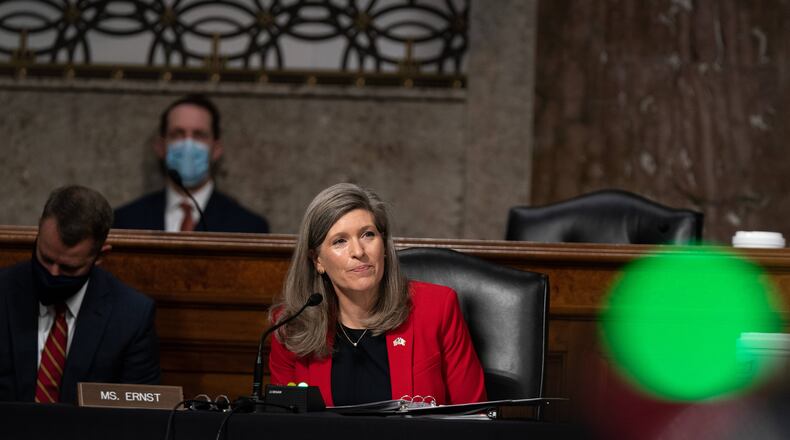Several U.S. senators advocated for the bill in a Washington, D.C. press conference Thursday, including Kirsten Gillibrand. D-N.Y., chair of the Senate Armed Services Personnel Subcommittee, with Chuck Grassley, R-Iowa, Joni Ernst, R-Iowa, Richard Blumenthal, D-Conn., Ted Cruz, R-Texas, and others.
“It looks like we’re going to have success this year,” Grassley said at the press conference, which was streamed online.
Two of three survivors of sexual assault in the military report retaliation after reporting crimes against themselves to the chain of command, Gillibrand said.
“This is a readiness issue,” said retired Air Force Col. Don Christensen, president of Protect Our Defenders. Christensen is a former Air Force judge and prosecutor with wide experience in these kinds of cases.
“This is a force protection issue,” Christensen also said. “This is an issue that drives out thousands of good men and women every year from wanting to serve this country.”
A sexual assault charge was referred to general court-martial last week in the case of Air Force Maj. Gen. William Cooley, a former commander of Air Force Research Laboratory, which is headquartered at Wright-Patterson Air Force Base.
Air Force Materiel Command Commander Gen. Arnold Bunch Jr., the general court-martial convening authority in the case, referred against Cooley one charge under the Uniformed Code of Military Justice, including three specifications of sexual assault under Article 120 against Cooley. Article 120 concerns sexual assault.
A time and place for the court-martial have not been determined yet, an AFMC spokesman recently told the Dayton Daily News.
Amy Marsh, a survivor of military sexual assault, said at the press conference that what she experienced after reporting an attack against herself was retaliation against her husband’s Air Force career and more.
Marsh has testified that in December of 2018, at Travis Air Force Base in California, she was sexually assaulted by an E-9, a non-commissioned officer. She said her assailant received nonjudicial punishment and was forced to retire early.
“The retaliation was more severe because I was an advocate for myself when it became clear that the military was not interested in bringing my assailant to justice,” Marsh said. “Instead, they answered with victim-blaming and attempted to sweep what had happened to me under the rug.”
The updated military justice legislation would “professionalize” how the military prosecutes serious crimes by moving the decision to prosecute from the chain of command to “independent, trained, professional military prosecutors,” advocates say.
The bill would also strengthen training for military prosecutors and improve security on military installations, among other provisions, supporters say.
Gillibrand first introduced the “Military Justice Improvement Act” in 2013. Since then, reports of sexual assaults in the military have doubled, Gillibrand’s office said, arguing as well that simultaneously, “the rate of prosecution and conviction has been halved.”
Citing Department of Defense data for fiscal 2018, Gillibrand’s office said there were nearly 21,000 instances of sexual assault that year, the most recent available data, compared to an estimated 14,900 instances identified in the 2016 survey.
The number of women in the military who experienced sexual assault increased from 8,600 in fiscal year 2016 to 13,000 in fiscal 2018, according to legislation supporters.
About the Author




